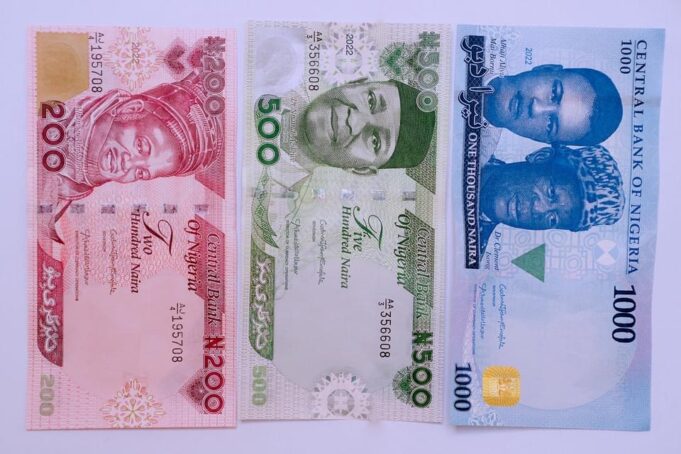Some bank customers have decried the scarcity of the redesigned naira notes in Deposit Money Banks (DMBs) and Other Financial Institutions (OFIs).
This is coming barely nine days to the January 31 deadline to stop the use of the old notes of the redesigned denominations as legal tender.
The customers, who spoke to NAN in Abuja on Sunday, complained that banks kept supplying their customers with the old notes, which would soon cease to be legal tender.
A civil servant, Ibrahim Abbas, said the banks have no reason to load their Automated Teller Machines (ATMs) with the old notes after customers have deposited them in their accounts as advised by authorities.
“They say that they are redesigning some denominations of the naira and that Nigerians should take their old notes to the banks and start getting the redesigned ones.
“But what we still get from the ATMs, and even from the bank counters are the old notes. This is not right,” Abbas said.
Another bank customer, Suleman Aliu, said the delay in flooding the banks with the new naira notes close to the deadline meant that some people would lose some of their money.
“If the deadline is January 31, which is nine days from today, and the banks are still supplying the old notes, it means they want some people to lose their money,” he said
A Point of Sale (PoS) operator, who spoke on condition of anonymity, said the Central Bank of Nigeria (CBN) needed to do better in its supply of the new notes.
READ ALSO: New naira notes: Govs back redesign policy, set up c’ttee to work with CBN
“CBN is telling us that there are enough of the redesigned notes in vaults of the DMBs, but the banks are saying that they do not have enough supply of the notes. Something is not adding up,” he said.
NAN recalls that the CBN announced plans to redesign certain denominations of the currency in October 2022, fixing January 31, 2023, as deadline for the circulation of the old notes.
Meanwhile, the apex bank says it has mandated the DMBs to ensure the issuance of the new notes strictly through their Automated Teller Machines (ATMs).
The CBN said this on Friday, in a statement jointly signed by Haruna Mustapha, the Director, Banking Supervision Department, and Musa Jimoh, the Director Payment System Management Department.
It said that the mandate was to ensure that distribution of the new currency notes was fair, transparent, and evenly spread across the country.
The CBN also allayed the fears of rural dwellers at accessing the new notes before the January 31 deadline.
It announced that it would inaugurate a cash-swap programme in rural and underserved areas of the country on Monday to boost the collection of the redesigned naira notes.
The apex bank said that the inauguration was informed by the need to maximise the channels through which underserved and rural communities could exchange their naira notes.
It said that the inauguration would hold in partnership with DMBs and super agents.
“The old N1,000, N500, and N200 notes can be exchanged for the redesigned notes or existing lower denominations of N100, N50, and N20 which remain legal tender.
“The super agents can exchange a maximum of N10,000 per person, while amounts above M10,000 shall be treated as cash-in deposit into wallets or bank accounts in line with the cashless policy.
“Bank Verification Number, National Identification Number or Voter’s Card details of the customer should be captured as much as possible,” the CBN said.
Also, the CBN had earlier disclosed that it ordered the printing of 500 million pieces of new naira notes in the first contract, which rolled out in the last week of December 2022.
The Deputy Governor, Financial System Stability, Aisha Ahmad, said this at a House of Representatives hearing on the implementation of the CBN cashless policy and the new withdrawal limits.
Ahmad said that there were 31 DMBs with 4,603 branches as of October 2022.
“In the OFIs sector, there are 878 Microfinance Banks with1,966 branches; 1.4 million agents; 899,642 PoS terminals, and more than 14,000 ATMs,” she said.
According to her, a review of the cost of currency management from 2017 to 2021 indicated an average increase of more than N10 billion per annum.
She said that over 90 per cent of currency management costs were attributed to banknotes production.
- How Professor forced me to trade my virginity for admission – Student - February 7, 2024
- Oil price rises after Saudi Arabia production cut announcement - June 5, 2023
- Subsidy: Fuel price hits N520 in Edo, Delta - May 30, 2023










